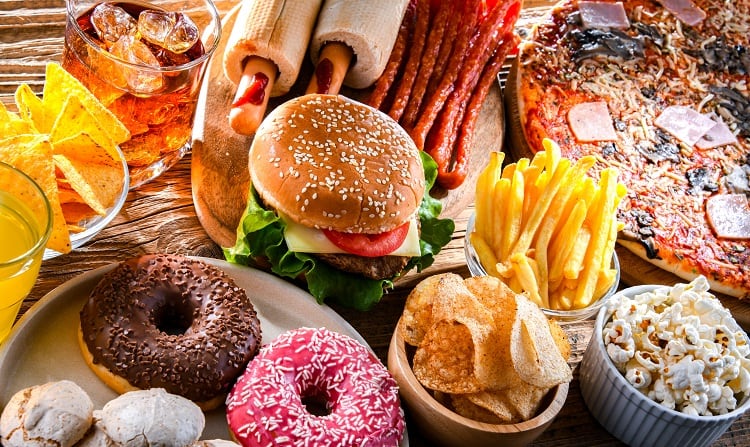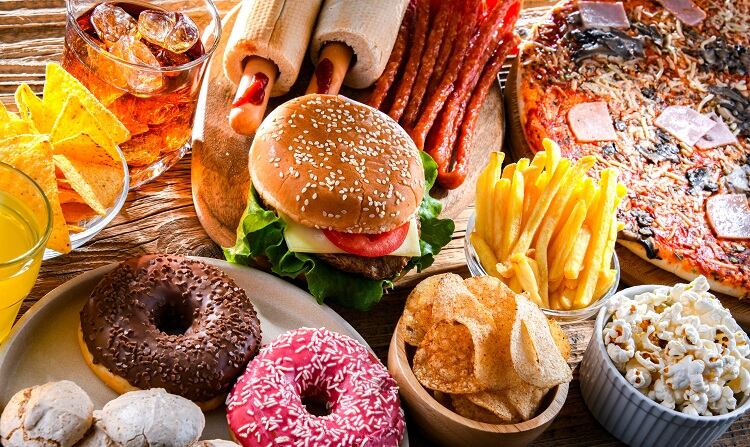Ultra-processed food (UPF) is finding itself increasingly in the spotlight, as growing nutrition research suggests links between consumption of UPFs with increased health risks, ranging from the development of cancer to dementia and increased risk of mortality.
According to the NOVA food classification system, which coined the term ‘ultra-processed foods’, UPFs typically have a long shelf life, contain five or more ingredients, and are likely to include additives and ingredients not typically used in home cooking.
These include preservatives, sweeteners, artificial colours and flavours, and emulsifiers.
It is this last ingredient that is the focus of new research out of Spain. Published in PLOS Biology, the study points to recent studies associating emulsifier consumption with gut microbiota dysbiosis, intestinal inflammation and cancer, metabolic syndrome, and obesity.
What has yet to be studied, however, is the impact of consuming emulsifiers while pregnant or lactating on offspring.
Studying emulsifier consumption in mice
Emulsifiers are amongst the most common UPF additives. They are used as stabilisers to form or maintain a homogenous mixture of two or more immiscible phases.
“They can be found in numerous UPF items, including margarines, mayonnaise, salad dressings, bread, ice creams, cake mixes, fruit juices, snacks, instant soups, and noodles amongst many others,” noted the study authors from the Institut d’Investigaciones Biomèdiques August Pi I Sunyer in Barcelona.
To examine whether the consumption of emulsifiers during pregnancy and lactation might have negative health impacts on offspring, the researchers gave laboratory mice water containing two kinds of emulsifiers commonly found combined together in food: carboxmethylcellulose and polysorbate-80.
Throughout the period prior to pregnancy through to lactation, female mice received the maximum concentration of each emulsifier allowed in human food products by the Food and Agriculture Organization and the World Health Organization.
A control group of mice received water without any emulsifiers.
Results revealed that the offspring of mice that consumed emulsifiers had a greater risk of certain health issues, including mild metabolic, cognitive, and psychological impairments.
Interestingly, these effects were strongest in male offspring, but female offspring also showed impairments.
Implications for humans?
“Collectively, our study showed that maternal consumption of emulsifiers commonly present in UPF items induced mild metabolic, cognitive, and psychological programming effects in the offspring in a sex-dependent manner,” concluded the study authors.
What does this mean for humans in pre-pregnancy through to lactation phases of life?
Additional research is needed to clarify the effects on offspring of emulsifier consumption by pregnant women. But even so, the researchers emphasise the importance of a healthy developmental environment during gestation and endorse the idea that the amount of UPFs consumed during gestation should be taken into ‘serious consideration’.
The researchers also raised concerns that food packaging labels rarely display the ‘actual content of additives in UPFs’, which can limit consumer understanding regarding the levels eaten.
Even food products that are perceived as ‘healthy’, such as vegan/vegetarian products, contain large amounts of additives, including emulsifiers, that per se could induce long-term metabolic impairments, the researchers stressed.
“We call for awareness of UPF intake during pregnancy and lactation to avoid potential detrimental effects on the metabolic and neuropsychiatric health of the progeny, thus building adequate nutritional habits for mothers and infants.”
The UPF debate
Consumption of UPF is on the rise. In the UK and US, it is thought that UPF consumption contributes to up to 25%-50% of the daily total intake in adults and more than 60% among school-age children.
At the same time, criticism around ultra-processing continues to build. And not purely from a health perspective: the impact of UPF production on environmental sustainability is another area of concern, with researchers linking increased consumption to higher greenhouse gas emissions.
But not all are convinced UPF should be vilified. Some experts argue processing can improve the nutritional profile of products and boost bioavailability. Others contend extreme processing can be ‘lifesaving’ – in specialised infant formula, for example.
A common counterargument against UPF opposition is that UPF is predominantly safe and accessible.
The argument that it would be impossible to transition to a sustainable food system, in accordance with the European Farm to Fork strategy, without food processing has also been made.
As the debate continues, even governments are getting involved. Recently, UK government scientists pointed to ‘uncertainties’ surrounding the quality of evidence linking consumption of UPFs with adverse health outcomes. The scientists contend more research in this field is required.
Source: PLOS Biology
‘Maternal emulsifier consumption programs offspring metabolic and neuropsychological health in mice’
Published 24 August 2023
DOI: https://doi.org/10.1371/journal.pbio.3002171
Authors: Maria Milà-Guasch, Sara Ramírez, Marc Claret et al.





